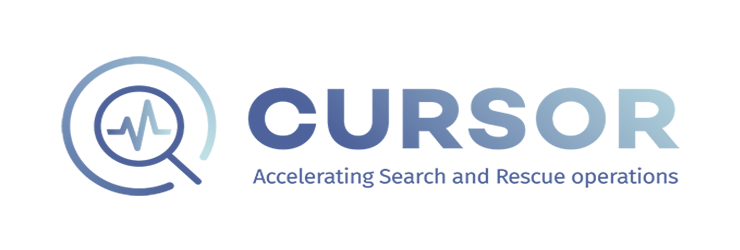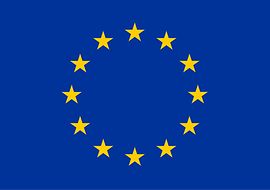CURSOR
Coordinated Use of miniaturized Robotic equipment and advanced Sensors for search and rescue OpeRations

CURSOR aimed at developing new and innovative ways of detecting victims under debris. This includes the coordinated use of miniaturized robotic equipment and advanced sensors for achieving significant improvements in search and rescue operations with respect to (a) the time used to detect trapped victims after a building structure has collapsed, and (b) an informed and accelerated decision making by first responders during rescue operations allowing for the deployment of expert personnel and, in particular for operations in hazardous environments, suitable equipment at prioritized locations.
CURSOR developed a system consisting of several integrated technological components. It includes Unmanned Aerial Vehicles (UAVs) for command & control, 3D modelling and transportation of disposable miniaturized robots, which are equipped with advanced sensors for the sensitive detection of volatile chemical signatures of human beings. Information and data collected are transferred in real time to a handheld device operated by first responders at the disaster site.
Project results
Project duration
09/2019 – 08/2022
Coordinator
- Technisches Hilfswerk Bundesministerium des Innern (Deutschland)
Participants
Practitioners
- Technisches Hilfswerk - Bundesministerium des Innern (Germany)
- Entente pour la Forêt Méditerranéenne (France)
- Merseyside Fire and Rescue Authority (United Kingdom)
- Service Départemental d’Incendie et de Secours de la Savoie (France)
- Hellenic Rescue Team ATTICA (Greece)
Small-to-medium enterprises
- EXODUS SA (Greece)
- C4CONTROLS (United Kingdom)
- International Security Competence Centre GmbH (Austria)
- Trilateral Research Ltd (Ireland)
- ARTTIC S.A.S. (France)
Research
- Tohoku University (Japan)
- Institute of Communications and Computer Systems (Greece)
- SINTEF AS (Norway)
- Commissariat à l’énergie atomique et aux énergies alternatives (France)
- The University of Manchester (United Kingdom)
Non-for-profit association
- German Institute for Standardisation (Germany)
This project has received funding from the European Union’s Horizon 2020 research and innovation programme under grant agreement No 832790.
